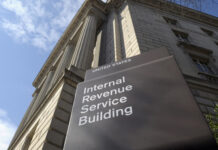
PROVIDENCE – The results of a two-year study conducted by the R.I. Division of Taxation show that the state could have collected between $21.5 million and $44.4 million more in corporate taxes in 2012 under a combined reporting tax structure.
Under current Rhode Island law, a corporation must file its tax return as a single or separate entity, taking into account only its own income for tax purposes, even if the corporation is part of a broader group of multi-state corporations under common ownership.
Under combined reporting, a corporation would be required to treat all of its affiliates in other states as if they were a single company and combine their taxable income in a single pool. The corporation would then use a formula to apportion the amount of combined income to Rhode Island for tax purposes.
Twenty-three of the 44 U.S. states that levy taxes on corporate income use combined reporting, including, in New England, Maine, Massachusetts, New Hampshire and Vermont.
Gov. Lincoln D. Chafee’s proposal in 2012 to implement combined reporting in Rhode Island drew criticism from the Rhode Island Public Expenditure Council, which claimed the state did not have enough data to evaluate its implementation.
“Combined reporting represents a significant change in the structure of the state’s corporate tax,” RIPEC stated in its June 2011 analysis of the proposal. “Accordingly, policymakers ought to study the proposed change to combined reporting in more depth than they would with regard to less sweeping changes in corporate tax law.”
The intent of combined reporting, RIPEC said, is to address tax-planning strategies by multistate corporations so they gain little or no advantage by shifting profits out of state, as well as to generate additional revenue for the state and to “level the playing field” between in-state and multistate corporations.
The same month RIPEC released its analysis, Chafee signed legislation approved by the General Assembly that directed the Division of Taxation to conduct a two-year study of the fiscal implications of changing Rhode Island’s corporate tax statute to require combined reporting. During 2011 and 2012, the Division of Taxation required certain businesses organized as C corporations to file their annual tax returns as if combined reporting were mandatory in Rhode Island.
The results of the study, published Monday, show that under combined reporting Rhode Island corporations would have had to pay between $23.4 million and $54.7 million more in taxes for 2011, depending on apportionment calculation method. For 2012, corporations would have had to pay between $21.5 million and $44.4 million more in taxes.
“This report comes at a good time,” said Chafee. “Many states, including Rhode Island, are reviewing their corporate tax structures. It is our hope that this report can serve as a helpful point of reference as we move forward in the discussion about any changes to the system of taxation in Rhode Island.”
Overall, the majority of corporations in Rhode Island, 64.6 percent, would have seen no change in their taxes in 2011 and 2012 under combined reporting, while 28.8 percent would have seen their taxes increase and 6.6 percent would have seen their taxes decrease, the Division of Taxation said.
Rhode Island Tax Administrator David M. Sullivan emphasized that the study was based on unaudited corporate tax returns, given insufficient time to ensure each return was complete and accurate. He also noted that the study spanned only two tax years – years during which Rhode Island businesses were, broadly speaking, recovering from recession. The study did not reflect the impact of combined reporting on tax revenue in years in which there is a general business downturn.
“This report presents a thorough and balanced look at a number of complex corporate tax issues,” said Sullivan, who delivered the study to the chairs of the House and Senate Finance Committees on Friday. “We look forward to providing any additional help for policymakers as they consider whether any changes are needed to our tax statutes.”
To view the complete report, visit www.tax.ri.gov.












